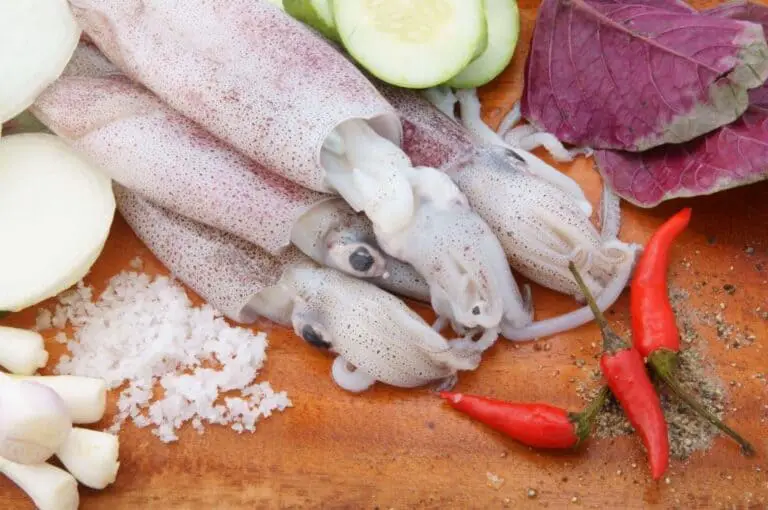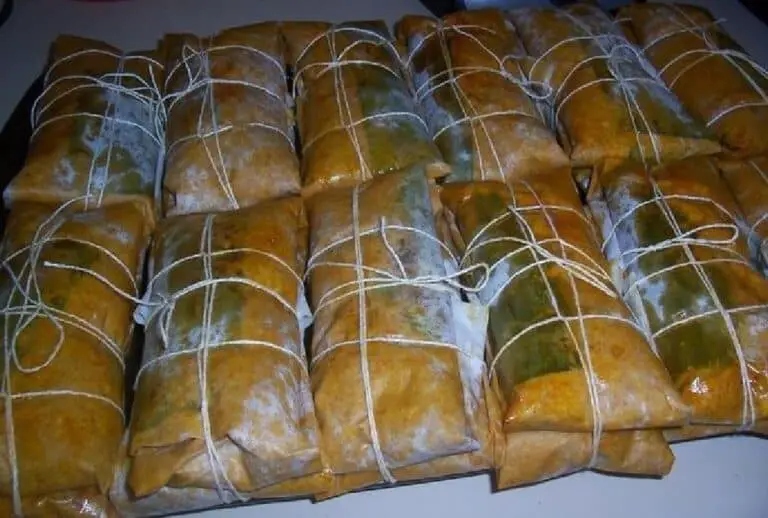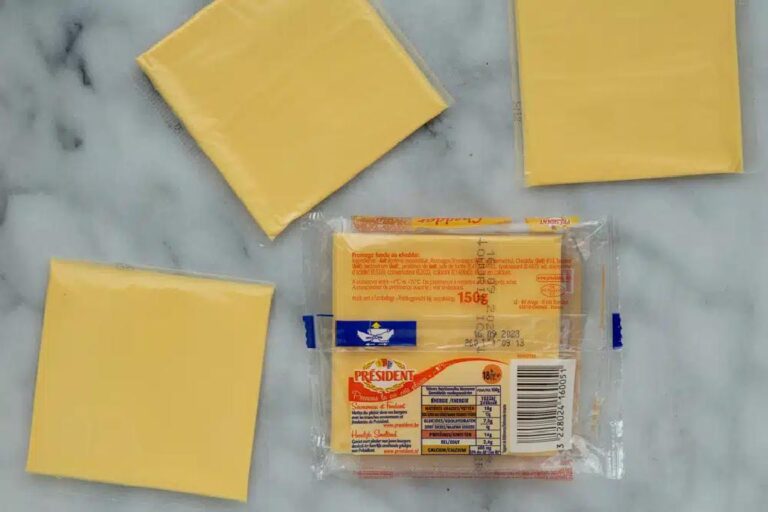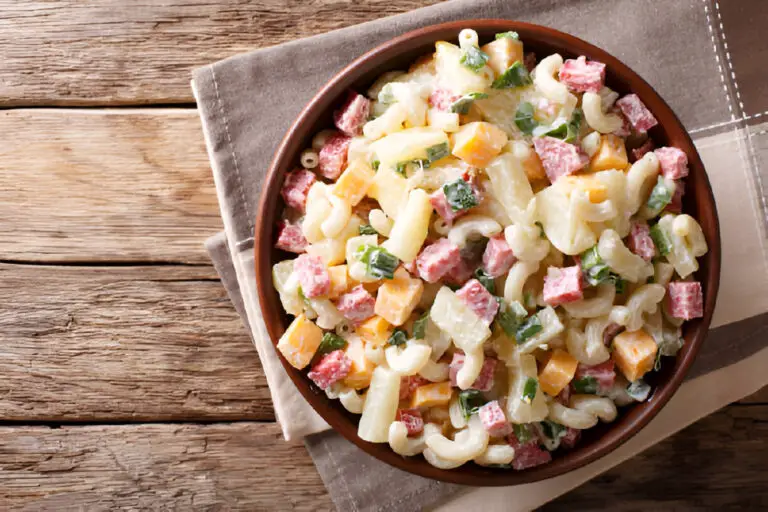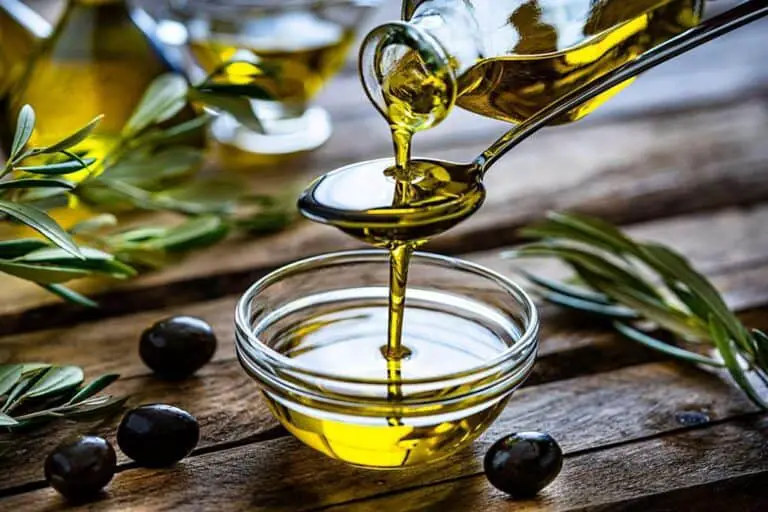Can You Eat Cinnamon Sticks Raw? Is It Safe Chewing Cinnamon Sticks?
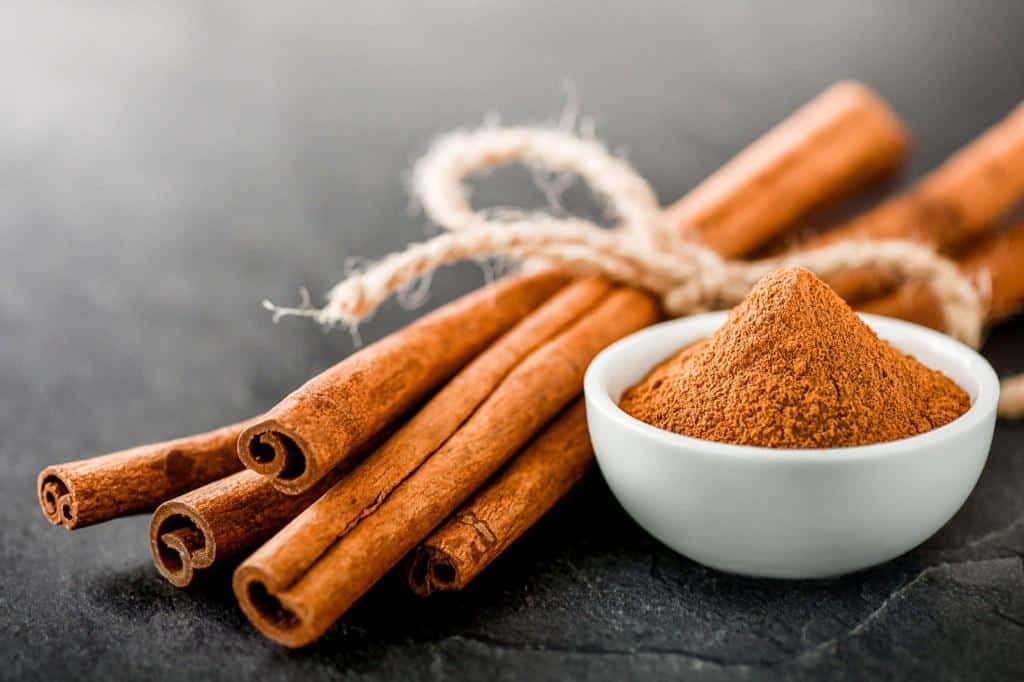
Cinnamon is a spice that has been used for centuries in cooking. It has a warm, fragrant, and deep flavor that can enhance many dishes.
Cinnamon can be used in sweet or savory recipes and is a versatile ingredient that can be used in many different cuisines.
Cinnamon is an excellent spice for baking, as it adds flavor and depth to cakes, cookies, and other desserts. It is also great for adding warmth to savory dishes such as stews and curries.
So, can you eat cinnamon sticks raw? Yes, you can eat cinnamon sticks raw, as they’re just natural spices like other spices. But there are some concerns if you want to eat it directly
Can You Eat Cinnamon Sticks Raw?
Yes, you can eat cinnamon sticks, as they are a natural spice made from the bark of cinnamon trees. While you may be tempted to nibble on a cinnamon stick, it’s not recommended. Cinnamon is a type of tree bark, and eating it raw can be hard on your digestive system.
Cinnamon sticks, also known as quills, are the dried bark of the cinnamon tree. When harvested, the bark is stripped from the tree and left to dry in the sun. Once dry, it is rolled into sticks and used as a spice.
If you do decide to give it a try, it is generally recommended to grind them into a powder or stir them into food as you’re cooking rather than chew on them. Cinnamon sticks are quite hard and can be difficult to chew, making them less palatable.
Eating too much cinnamon can cause health problems due to its high amounts of a compound called coumarin. Coumarin is a natural blood thinner and can cause liver damage if consumed in large amounts. Therefore, it is best to consume no more than one three-inch stick of cinnamon (6 g/0.2 oz) per day.
So, while you may be able to eat cinnamon sticks raw, it’s probably not the best idea. It’s better to stick (no pun intended) to using them as a spice in cooking or baking.
Why Are Cinnamon Sticks So popular?
There are several reasons why cinnamon sticks are more popular and sought-after than other spices:
- One reason is that they add a unique flavor to food. Cinnamon has a sweet and spicy flavor that can enhance the taste of many dishes.
- Another reason is that cinnamon sticks are beautiful. The cinnamon bark has a deep, rich color, and the sticks have a nice shape. They can be used to decorate dishes or as a garnish.
- Cinnamon sticks also have many health benefits. They are a good source of antioxidants that boost the human immune system. They are also known to have anti-inflammatory properties, which can help relieve pain and stiffness in joints.
- Finally, cinnamon sticks are popular because they are relatively inexpensive compared to other spices.
Health Benefits Of Cinnamon Sticks
- Cinnamon is a spice that offers a wide range of health benefits due to its rich nutrient and compound content, including polyphenols, antioxidants, and unique molecules like cinnamaldehyde, citral, and cinnamate.
- Researchers have found that cinnamon may help people with type 2 diabetes by making it easier for the body to absorb glucose. By doing so, it makes muscle and fat tissue more sensitive to insulin, makes the liver make more glycogen, and makes the stomach empty more slowly.
- Cinnamaldehyde, a chemical found in all types of cinnamon, is responsible for these effects. Cinnamon has been shown to help control blood sugar, but people with diabetes should still follow their doctor’s treatment plan because cinnamon is not yet strong enough to replace medication.
- Cinnamon is also good for you because it contains antioxidants. Antioxidants are important for a healthy diet because they get rid of harmful free radicals in the body.
- Cinnamon sticks are a rich source of anti-inflammatory compounds, which may provide various health benefits such as reducing the risk of heart disease, improving blood sugar control, and protecting against certain types of cancer.
- Cinnamaldehyde has also been shown to kill bacteria and stop the growth of cancer cells in animal studies.
- Furthermore, cinnamon may also have a role in the prevention of Alzheimer’s disease, the reduction of inflammation in rheumatoid arthritis, and the prevention of arterial hardening (arteriosclerosis).
- Cinnamon sticks may also help to boost brain function, improve digestion, and reduce the risk of infections.
How Long Does a Cinnamon Stick Last?
A cinnamon stick can last for a long time, depending on how you store it. Keep your cinnamon cool and dark in an airtight container. Whole cinnamon sticks will keep their flavor for about 4 years, while ground cinnamon will only last 6–9 months before it starts to lose its potency.
TIPS 
If you want your cinnamon to last as long as possible, buy whole sticks and grind them into powder as needed. This will give you the freshest flavor and the longest shelf life.
How to Safely Consume Cinnamon
Cinnamon has been shown to be a safe and effective spice. However, there are a few safety concerns that you should be aware of before using it. Here are some tips on how to enjoy cinnamon safely:
- Start with a small amount. Cinnamon is very potent, and a little goes a long way. Add it slowly to your food or drink until you find the perfect balance for your taste buds. As a result, you will not have to use as much of it.
- Do not use cinnamon in large amounts if you are on blood thinners, like warfarin (Coumadin). Cinnamon may act as a blood thinner and cause bleeding problems or bruising.
- Do not use cinnamon if you have any allergies to cinnamon or other plants in the same family, like cassia and canela. If you’re not sure whether or not you’re allergic, do a patch test first by placing a small amount of cinnamon on your skin. If you get redness, swelling, or itching, stop using the product right away and talk to your doctor.
- Do not consume large amounts of cinnamon if you are pregnant or breastfeeding. Cinnamon may stimulate uterine contractions, which could lead to miscarriage.
- If you have kidney disease or are getting dialysis treatments, don’t eat a lot of cinnamon. High amounts of cinnamon could cause kidney failure and further damage to your kidneys.
- Do not consume large amounts of cinnamon if you are taking medication to treat diabetes. Cinnamon can lower blood sugar levels, which could be harmful to patients with diabetes.
- If you have gallstones or liver disease, you shouldn’t eat a lot of cinnamon. It is best to talk to your doctor first before using it during this time period.
How Much Cinnamon Can You Safely Eat?
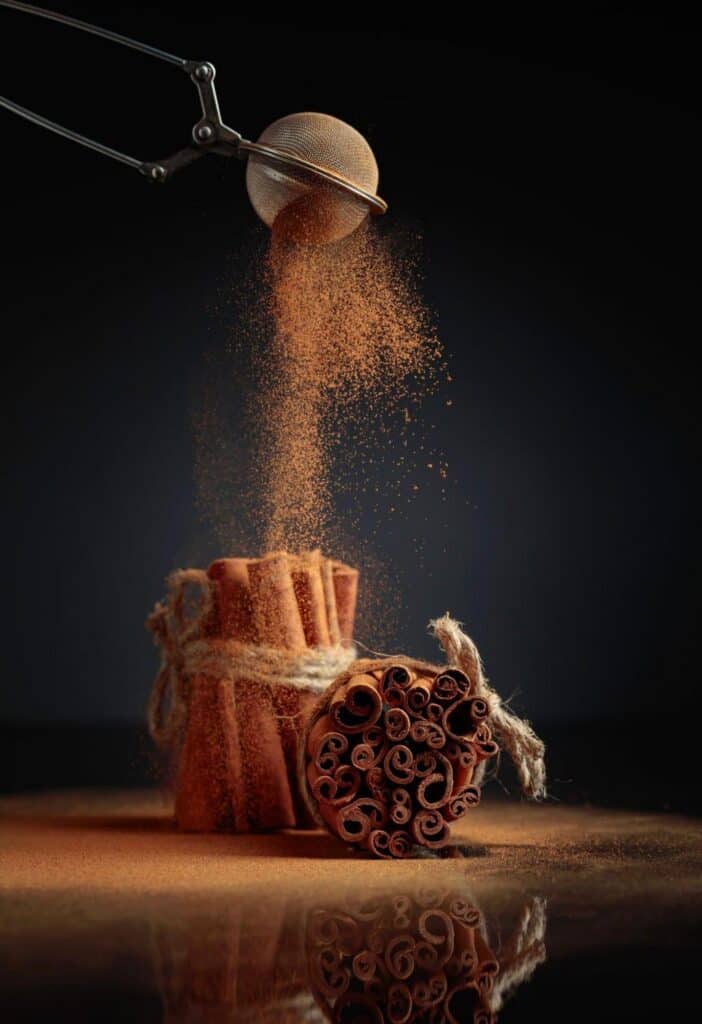
The answer depends on a few factors, including your age, health, and the type of cinnamon you’re consuming.
For most people, up to 2 teaspoons (10 grams) of cinnamon per day is perfectly safe. You can get this amount by adding cinnamon to your food or taking it as a supplement.
If you’re over the age of 60 or have liver problems, you should limit your intake to 1 teaspoon (5 grams) per day. And if you’re taking blood-thinning medication, you should talk to your doctor before consuming any cinnamon at all.
How Can You Use Cinnamon Sticks?
1. Tea With Cinnamon Sticks Infused
One of the most popular ways to use cinnamon sticks is by infusing them in hot water to make a delicious and aromatic tea. To make cinnamon stick tea, simply add a few sticks to a pot of boiling water and let it steep for 5–10 minutes. The longer you steep, the stronger the flavor will be. You can also add other ingredients like ginger, honey, or lemon to make a more complex tea.
2. Use Cinnamon Sticks as Tea or Coffee Stirrers
Another way to use cinnamon sticks is by using them as a natural stirrer for your tea or coffee. Simply add a cinnamon stick to your cup of tea or coffee and stir it in. This will give your drink a subtle cinnamon flavor and aroma, and you can even eat the cinnamon stick after you’re done.
3. Add More Flavor to Your Rice
Adding a cinnamon stick to your rice while it cooks can give it a subtle cinnamon flavor and aroma. This works well with rice dishes that are cooked with other spices like turmeric, cumin, or coriander.
4. Add Cinnamon Sticks to a Slow Cooked Meal or Roast
Adding cinnamon sticks to a slow-cooked meal or roast can add a lot of flavor to the dish. It’s a great way to add a subtle sweetness to savory dishes and other culinary uses. It is also works well with meats like beef, pork, and chicken. Simply add a few cinnamon sticks to the pot or pan and let it cook with the rest of the ingredients.
5. Spice up Your Soup Broths
Cinnamon sticks can also be used to add flavor to soup broths. Simply add a few cinnamon sticks to the pot when making the broth and let it simmer for a few minutes. This will infuse the broth with a subtle cinnamon flavor and aroma. This is particularly good with soups like lentil or vegetable soups. You can remove the cinnamon sticks before serving or leave them in for a more intense flavor.
How Do You Know if Your Cinnamon Stick Is Real?
So how can you tell if your cinnamon stick is real? Here are some tips on how to check for genuine cinnamon:
- One way is to look at the color. Real cinnamon sticks should be a dark brown color, while fake ones are often lighter in color.
- Feel the texture. Real cinnamon sticks should be smooth, while fake ones often have rough edges. When you rub the cinnamon between your fingers, it should feel powdery and not sticky.
- The fragrance of the cinnamon should be sweet and spicy.
- When you taste the cinnamon, it should be mildly sweet with no bitter aftertaste.
- Finally, you can try breaking the stick in half. If it snaps easily, it’s likely real cinnamon. If it’s difficult to break or bend without snapping, it’s probably not real cinnamon.
Conclusion
Cinnamon is a spice that has been used for centuries in both sweet and savory dishes. It is one of the most sought-after materials for culinary uses. It is made from the bark of the cinnamon tree and is available in either ground or stick form.
In conclusion, yes, you can eat and chew cinnamon sticks raw, but it is not recommended. Cinnamon is a spice that can be enjoyed in many ways, and there are no known health risks associated with eating cinnamon sticks raw. In fact there ar numerous health benefits of eating cinnamon sticks.
However, if you do choose to eat them raw, be sure to wash them thoroughly first and avoid consuming too much, as the flavor can be quite strong.
So there you have it! Cinnamon is a healthy and delicious spice that can be enjoyed by most people in moderate amounts.
FAQs
Can you eat cinnamon sticks raw?
Yes, you can eat cinnamon sticks raw, but they may be tough to chew and may not have the same flavor as ground cinnamon or cinnamon bark oil.
Is it safe to eat cinnamon sticks?
Eating cinnamon sticks in moderation is generally safe for most people. However, consuming excessive amounts of cinnamon sticks can increase the risk of liver damage due to the presence of coumarin in the inner bark of several cinnamon species.
What are the health benefits of cinnamon?
Cinnamon contains cinnamaldehyde, a compound with antioxidant and anti-inflammatory properties. It may help lower blood sugar levels and improve brain function, and some studies have found that cinnamon may also have potential benefits in fighting Alzheimer’s disease.
Can you use cinnamon sticks to take cinnamon?
Yes, you can use cinnamon sticks to take cinnamon. Simply grind the sticks into a fine powder or steep them in hot water to make cinnamon tea.
What is the difference between ground cinnamon and cinnamon sticks?
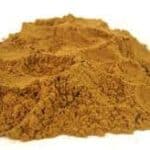
Ground cinnamon is made by grinding cinnamon sticks into a fine powder, while cinnamon sticks are made from the dried inner bark of several cinnamon species.
How much cinnamon is safe to consume?
The amount of cinnamon that is considered safe to consume varies depending on the form of cinnamon and the individual. However, studies have found that consuming more than 0.1 mg of coumarin per kg of body weight per day can increase the risk of liver damage.
Can cinnamon cause liver damage?
Consuming large amounts of coumarin, a compound present in some species of cinnamon, can cause liver damage. However, using cinnamon sticks in moderation is generally safe for most people.
What are the potential side effects of consuming too much cinnamon?
Consuming too much cinnamon can cause liver damage and increase the risk of bleeding due to coumarin, a compound found in cinnamon. It may also cause mouth sores, skin irritation, and allergic reactions in some people.
Can chewing on cinnamon sticks cause liver damage?
Chewing on cinnamon sticks may increase the risk of liver damage if the amount of coumarin consumed exceeds safe levels. It is generally recommended to use cinnamon sticks in moderation and avoid excessive consumption.
Can cinnamon bark oil substitute cinnamon sticks?
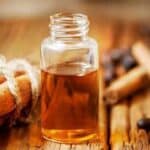
Yes, cinnamon bark oil can be used as a substitute for cinnamon sticks in many recipes and can be added to hot beverages or used in topical applications. However, it is important to use cinnamon bark oil in moderation and consult a healthcare provider before using it as a dietary supplement.

